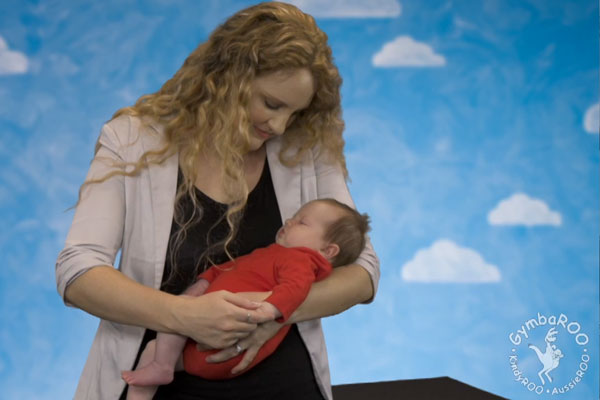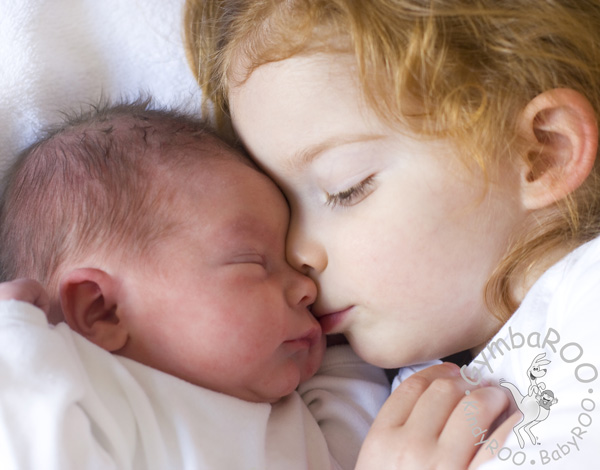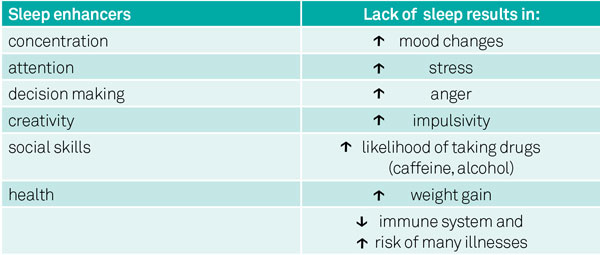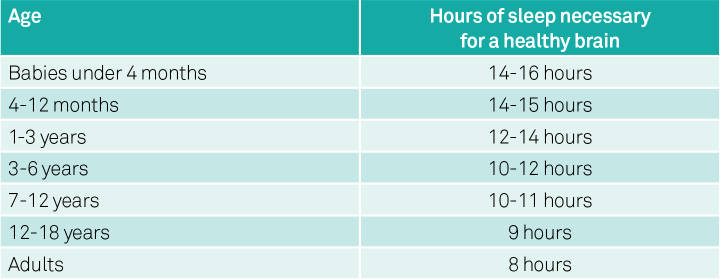Join the thousands of parents already raising smarter, happier babies with our online baby classes: The Active Babies Smart Kids series. Click here.
GymbaROO-KindyROO kids are excelling academically, emotionally, in leadership roles and on the sporting field. Find us at: GymbaROO-KindyROO
Dr Jane Williams and Bindy Cummings
Sleep.. sigh…for some it comes easily and for others… well, slipping into the land of slumber often involves less of a downhill slide and more of an uphill marathon… and I’m talking about babies, children and adults! We all know how hard it can be to get a grip when sleep deprived, however in terms of our little one’s development and learning capacity, is there more at stake? This research news by Dr Jane Williams warrants attention. Having said that, if you have one of those little people that fights sleep tooth and nail, don’t lose any sleep over it (ooh…terrible pun..sorry), things will change and if you need more advice than is in this article, there are some excellent resources out there to give you more tips on how to help children get into a good sleep routine.
Sleep. Behave. Learn. The importance of sleep for babies and children
Would you like your children to behave well and learn to the best of their ability? Then try a good (long) night’s sleep! Research suggests children who have relatively short night time sleep duration are at high risk for several externalising behavioural problems as well as a diminished ability to learn.
A study of almost 9000 preschool-aged children showed that those who averaged fewer than nine hours of sleep per night were significantly more likely to have tantrums and show impulsivity, anger and overactivity than their peers who averaged more nightly sleep. The children with less sleep were also 80% more likely to show aggression. Although the study could not prove causality, the researchers note that the findings do suggest that sleep duration is critically important to a young person’s health and well-being.
Bad behaviour not the only problem
Another study showed that irregular bedtimes throughout early childhood can impair cognitive development. It was particularly notable that irregular bedtimes at three years of age were associated with lower scores in reading, maths and spatial awareness in both boys and girls at the age of seven. Furthermore, the impact is cumulative – so a child who experienced irregular bedtimes over a number of years was more likely to have learning problems at school. “Reduced or disrupted sleep, especially if it occurs at key times in development, could have important impacts on health throughout life,” wrote the authors.
Lead author of the research into the affects of sleep on behaviour, Dr. Rebecca Scharf (MD, MPH), from the University of Virginia in Charlottesville, was interested to hear that so many of the people she knew both clinically and socially were commenting on sleep issues of their young children. Dr Scarf was so amazed by this commonly occurring complaint that she was motivated to look more closely into the affect that poor sleep would have on the children.
The children’s sleep duration was estimated on the basis of computer-based parental reports of weekday bed and wake times. The overall average bedtime for all children was 8:39 pm. The average waking time was 7:13 am. To analyse the results, the investigators assessed sleep duration of fewer than and more than 9.44 hours.
Results showed that children who averaged fewer than 9.44 hours of sleep per night (11% of the participants) had higher adjusted odds of having all six of the behaviour problems examined compared with children who had more hours of nightly sleep. Behaviour problems included:
- Aggression
- Tantrums
- Impulsivity
- Anger
- Annoying behaviours
- Overactivity
The participants’ gender, number of hours of television viewing and maternal depressive symptoms were not individual risk factors for shorter sleep duration. However, boys who watched more than two hours of television per night and boys who had mothers with depressive symptoms had worse overall behaviour scores than other sub groups.
The neuroscience behind the results
Research into how the brain functions shows that sleep is important for:
- Restoration. Amazingly, genes responsible for the restoration of important neural (message) pathways and metabolism are only turned on during sleep.
- Brain processing and memory consolidation. Never has the saying “to sleep on it”, been proven to be more true! Research has found that the ability to come up with new and creative ideas and solutions to complex problems is increased three-fold by a night of good sleep.

Children and adults alike need a good night’s sleep consistently. Babies and very small children need nearly twice as much sleep as adults.
How to ensure your child has good night’s sleep
- Have a regular bedtime. Let your child know that it is bedtime and stick to it
- Keep the room as dark as possible and keep the room cool
- Make sure the bed is comfortable and the room inviting and quiet
- Do not expose your little one to bright light before going to bed (like in the bathroom)
- Turn off computers and screens (TV, computer, hand-helds etc.) at least ½ hour before going to bed
- Read a bedtime story to induce the natural calming rhythms of the brain and body
- Avoid sweet, coloured drinks like cordial and soft drinks, especially in the hours before bed
A good night’s sleep helps everyone manage the many challenges and tasks we encounter in our busy days. Children and teenagers especially require the right amount of good quality sleep as their brains are working extra hard at the ‘wiring and the firing’!
Dr Jane Williams (PhD, BMgt, RN(Paeds)) is the Research and Education General Manager for GymbaROO and KindyROO. Dr Williams is one of Australia’s leading experts on baby and child development. More on Dr Williams here.
Bindy Cummings (B.Ed(Human Movement) Hons) has worked as a teacher, child development consultant, early childhood development lecturer, teacher trainer and INPP & iLS consultant. She is the co-creator of GymbaROO’s Active Babies Smart Kids online series, has authored many published articles on child development. She is working on the content and development GymbaROO’s portal and online training programs, and the creation of new online programs for parents and children. More on Bindy Cummings here.
Foster, R. (2013). TED talk: Inside the sleeping brain. Available online at: http://inside-the-brain.com/2013/08/20/inside-the-sleeping-brain/. Kelly, Y., Kelly, J. & Sacker, (2013). A time for bed: associations with cognitive performance in 7-year-old children: a longitudinal population-based study. Journal of Epidemiology and Community Health. Published online July 8 2013 doi:10.1136/jech-2012-202024. Scharf, R. J., Demmer, R. T., Silver, E. J., Stein, R. E.K. (2013). Night time sleep duration and externalizing behaviors of preschool children. Journal of Developmental and Behavioral Pediatrics 34(6), 384-391.
Active Babies Smart Kids – Online Baby Classes
GymbaROO-KindyROO’s online series of baby classes is taking the parenting world by storm! It is highly recommended by doctors, paediatricians, early childhood experts and the Maternal Child and Family Health Nurses Association. This series is being called: “The essential guide for parents”. Join the thousands of parents already playing with their babies from birth, in the best way for brain and body development and laying crucial foundations for future learning. What happens in the first year, not only matters, it matters a lot! Enjoy the introductory video below.
Click here: Active Babies Smart Kids online series of baby classes
Try the first episode FREE: Tummy time + baby fun and development class 1
GymbaROO-KindyROO
Thousands of parents, babies and children are presently involved in our programs and creating rising stars. GymbaROO-KindyROO kids are excelling academically, emotionally, in leadership roles and on the sporting field. Come join all the fun and learning! “GymbaROO – The best decision I ever made for my child.” Classes from 6 weeks old – 7 years GymbaROO KindyROO
Enjoy the following GymbaROO-KindyROO articles
GymbaROO-KindyROO: Who, what, where, why and how
All about GymbaROO-KindyROO’s online baby classes for parents and babies: Active Babies Smart Kids
How to raise a smarter, happier baby
Why active babies make smart kids.
Overstimulation. Is your baby at risk of sensory overload?
Finger Painting – A Brilliant Activity for Babies and Toddlers.
W-sitting and what to do about it.
Toilet training. When, why and how.
Click here for more GymbaROO-KindyROO article choices



